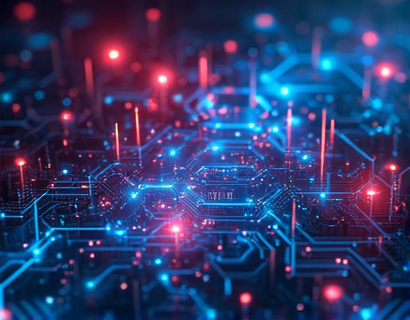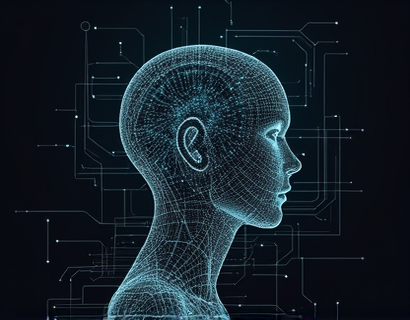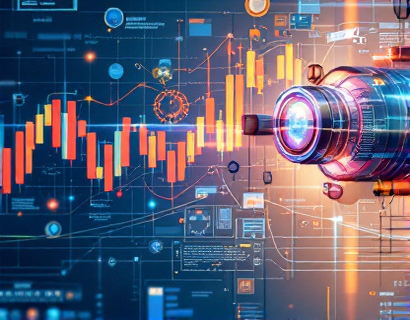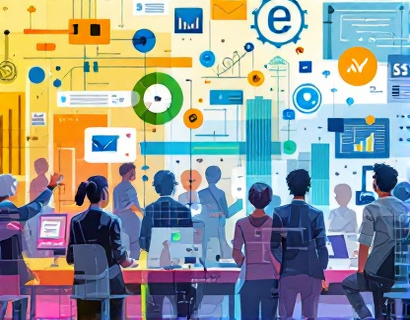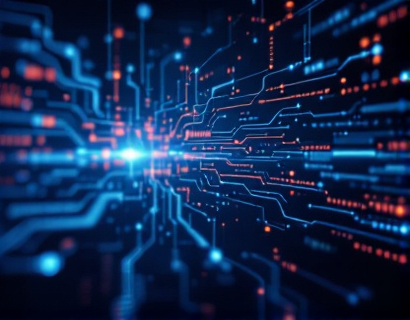AI-Driven Task Management: Elevating Personal and Professional Productivity with Intelligent Agents
In the fast-paced world of today, productivity has become a critical factor for both personal success and professional growth. The integration of Artificial Intelligence (AI) into task management systems represents a significant leap forward, offering intelligent solutions that adapt to individual needs and optimize workflows. These AI-driven agents are not just tools; they are transformative agents that intelligently manage tasks, streamline operations, and enhance efficiency across various domains.
The concept of using AI for task management is rooted in the desire to automate repetitive and time-consuming tasks, allowing individuals and businesses to focus on high-value activities. By leveraging machine learning algorithms, natural language processing, and predictive analytics, these intelligent agents can understand, prioritize, and execute tasks with a level of sophistication previously unattainable.
Understanding AI-Driven Task Management
AI-driven task management systems operate by first gathering data on user preferences, task history, and contextual information. This data is then processed to identify patterns and predict future needs. The system learns from interactions, continuously improving its ability to manage tasks effectively. For instance, it can recognize urgent tasks based on deadlines, prioritize repetitive tasks to automate them, and even suggest optimal times for task execution based on the user's schedule and productivity patterns.
One of the key advantages of AI-driven task management is its ability to handle complex and dynamic environments. Traditional task management tools often struggle with adapting to sudden changes or unexpected tasks. In contrast, AI agents can quickly reassess priorities and adjust plans in real-time, ensuring that critical tasks are always addressed promptly.
Enhancing Personal Productivity
For personal productivity, AI-driven task management offers a personalized approach that caters to individual lifestyles and work habits. These systems can integrate with calendars, email, and other digital tools to create a comprehensive view of a person's commitments and tasks. By analyzing this data, the AI can suggest the best times for checking emails, setting reminders for important dates, and even propose breaks to maintain optimal focus and avoid burnout.
Moreover, AI agents can help in goal setting and tracking progress. Users can define long-term objectives, and the AI will break these down into actionable steps, assign deadlines, and monitor progress. This not only keeps individuals on track but also provides a sense of accomplishment as milestones are achieved.
Boosting Professional Productivity
In a professional setting, the benefits of AI-driven task management are equally profound. Teams can use these systems to coordinate projects, assign tasks, and track progress in real-time. The AI can identify bottlenecks, suggest resource allocations, and even predict potential issues before they arise, enabling proactive problem-solving.
For managers, AI agents can serve as virtual assistants, handling routine administrative tasks such as scheduling meetings, managing travel arrangements, and compiling reports. This frees up valuable time for strategic decision-making and leadership responsibilities. Additionally, AI can provide insights into team performance, helping managers to identify areas for improvement and optimize workflow.
Seamless Integration and User Experience
The success of AI-driven task management systems lies in their seamless integration into existing workflows. These tools are designed to be user-friendly, requiring minimal setup and training. Users can interact with the AI through natural language commands, making the experience intuitive and accessible. Whether it's a simple reminder or a complex project plan, the AI adapts to the user's communication style, ensuring a smooth and efficient interaction.
Furthermore, these systems can be customized to fit specific industry needs. For example, in healthcare, an AI agent might prioritize patient appointments and medication reminders, while in construction, it could manage project timelines and resource allocation. This flexibility ensures that the technology is applicable across a wide range of sectors.
Challenges and Considerations
Despite the numerous benefits, the adoption of AI-driven task management is not without challenges. One of the primary concerns is data privacy and security. Users must trust that their sensitive information is handled with the utmost care. Developers of these systems must implement robust security measures and comply with data protection regulations to build and maintain user trust.
Another consideration is the potential for over-reliance on AI. While these agents can significantly enhance productivity, it's essential to maintain human oversight to ensure that decisions are made with a holistic understanding of context and ethics. Striking the right balance between automation and human judgment is crucial for sustainable productivity gains.
Future Trends in AI-Driven Task Management
The future of AI-driven task management is promising, with ongoing advancements set to further enhance its capabilities. One area of focus is the integration of augmented reality (AR) and virtual reality (VR) to create immersive task management experiences. Users could visualize project timelines, collaborate in virtual spaces, and interact with tasks in a more engaging and intuitive manner.
Additionally, the development of more sophisticated natural language processing will enable even more natural and effective interactions between users and AI agents. This will make the technology more accessible to a broader audience, including those who may not be tech-savvy.
Another exciting trend is the incorporation of emotional intelligence into AI agents. By understanding and responding to the user's emotional state, these agents can provide more empathetic support, adjusting their suggestions and reminders based on the user's current mental state. This could lead to a more supportive and personalized productivity experience.
Conclusion
AI-driven task management represents a significant evolution in how we approach productivity. By intelligently managing both personal and professional tasks, these intelligent agents streamline operations, reduce stress, and allow individuals and teams to focus on what truly matters. As the technology continues to advance, the potential for enhancing productivity and achieving goals becomes even more compelling. Embracing AI-driven task management is not just about keeping up with the times; it's about redefining what's possible in the realm of productivity.











